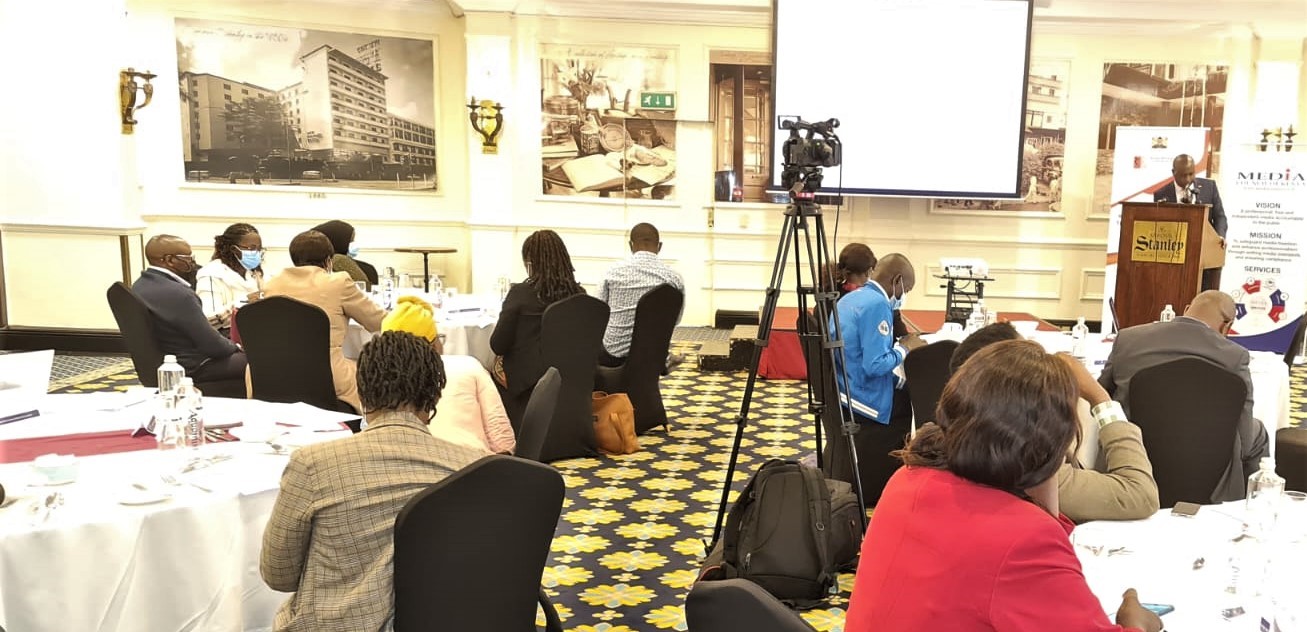
The Media Council of Kenya CEO Mr David Omwoyo has urged the media to help unpack information on blood transfusion and human organs transplant.
Mr Omwoyo says the prevalent misinformation, fallacies and folklore around blood donations, tissue and human organ transplants has contributed to the low involvement of the public.
“This is a critical area that has been taken lightly yet it can save millions of lives. The media should use its power to demystify issues around blood, organs and tissue donations”, Mr Omwoyo told editors at an engagement organised by the Media Council of Kenya and the Kenya National Blood Transfusion and Human Organ Transplant Services (KNBTTS) in Nairobi.
The Council has teamed up with KNBTTS to sensitise the media industry to advance public awareness on the voluntarily donated emergency life-saving products. Part of this will involve training of journalists and facilitating access to information.
Mr Omwoyo said the Council will ensure that matters of blood transfusion and human organs transplants are reported accurately given their sensitivity. He encouraged the media to counter misinformation through accurate reporting and simplifying the topic for the public.
“As the country’s media regulator, the Media Council of Kenya places major emphasis on professional reporting of matters of public interest, key among them health matters. We will continue to spearhead efforts towards professional reporting of matters health, including blood donations and organ transplants through regular engagements with the media”, he said.
He pledged the Council’s continued support to health journalists through provision of travel grants to produce well-researched stories, including those on blood transfusion and human organ transplants.
KNBTTS Director Dr Nduku Kilonzo said the organisation seeks to work with the media to encourage people to donate blood and human organs and to help challenges of access.
“Our goal is to ensure that the public is well informed about the voluntarily donated emergency life-saving products which do not have pharmaceutical replacement and to ensure they are administered for genuine therapeutic’’, said Dr Kilonzo.